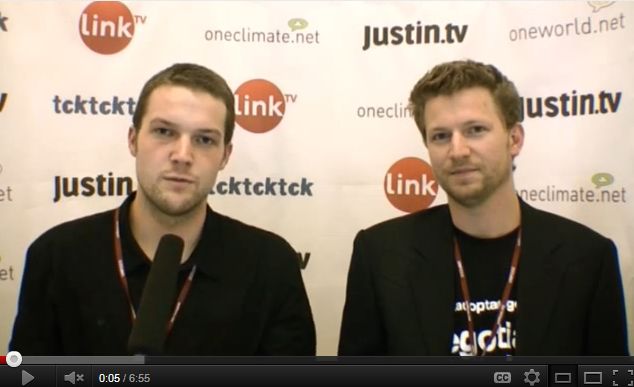The latest round of United Nations climate talks in China this week are crucial to ensure a practical outcome in the much-anticipated December talks in Cancun.
It’s almost been a year since Copenhagen. A year since we came away discouraged and disheartened by inadequate climate action. A year since we wondered, what next?
During the past year we’ve witnessed both the physical and political impacts of climate change. Environmental disasters across the world have been accompanied by a range of significant political shifts.
Numerous countries in the Northern hemisphere have recorded their highest temperatures. Russia has faced unprecedented fires that have destroyed thousands of lives and livelihoods. Millions of people have been displaced in Pakistan as they face their worst floods in decades. And once again, the Asian monsoon arrived late, devastating agriculture across Asia.
In Australia, we have the first minority government since 1940. We have a new Prime Minister and new Minister for Climate Change. We’ve seen the announcement of a new climate change committee, and a new range of businesses calling for a price on carbon pollution. Overseas, we’ve seen mixed outcomes on climate. Whilst President Obama failed to get climate legislation through the US senate there has been a sharp increase in renewable energy investment elsewhere.
It is in this context that for the first time ever, the United Nations climate change negotiations will be held in China.
During this week all nations are coming together in the city of Tianjin in the north-east of China to work on the building blocks of a global climate treaty. This is the final meeting before the major UN Climate Summit of 2010 which will be held in Cancun, Mexico in December.
This is a crucial meeting. The momentum of the UN climate negotiations has slowed since Copenhagen and now is the opportunity to pick the process up. To match action with the science, not just the politics.
The absence of a comprehensive climate deal does not mean that good work has not begun. We are already seeing mitigation action happening domestically in many leading world economies – particularly in Europe and China, but also emerging in South Korea, Japan and other places. These climate conferences need to ensure that action is happening transparently, and set up structures to more effectively and swiftly fund adaptation and mitigation in developing countries.
In Australia, we are lagging behind. Our lack of domestic action on a price on carbon pollution is globally embarrassing. In the lead up to Cancun, Australia must re-commit to securing a legislated limit and price-tag on pollution in the next twelve months, to restore our reputation and join the international community.
And we need to move in other sectors as well. For example, in the section of the negations that deals with emissions associated with forests, Australia is holding up progressive action. Our government is blocking an agreement that would see pollution from forest-logging become mandatorily accounted for.
There are a range of issues our government can move forward on at the UN climate negotiations. Australia needs to step up, and work more generously and constructively for a long-term international treaty for a safe climate future.
There is a growing sense of urgency across the world when it comes to climate change. In a few days time, on 10/10/10, we will witness the Global Work Party. This day will see well over 5,000 events where communities will take practical action to cut carbon and build a clean energy future. People are prepared and energised to take real action. We need our leaders to do likewise.
There has been progress since Copenhagen. Perhaps not as far as many would have liked. But we’ve moved forward.
The ingredients are there for strong international action are present. Tianjin is an opportunity to pick up the UN process and take steps towards the treaty that is needed.
This article was originally published on ABC Environment on 5/10/10



